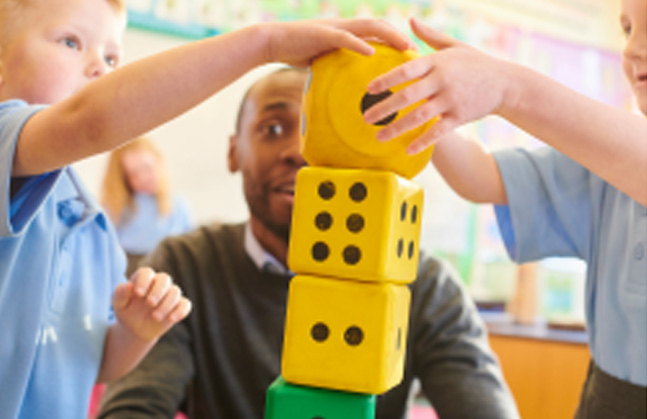Improving your numeracy skills can seem like a daunting task, but don’t worry, you’re not alone.
A surprising 57% of working age adults in England are believed to possess low numeracy skills. This implies that, at best, their ability to work with numbers is equal to that of Year 6 children who have just finished primary school. Many people struggle with numbers, but with a little bit of practice and patience, anyone can improve their skills. In this blog, we explore how
starting small is key to building your numeracy confidence.
Begin by practicing basic calculations, such as addition, subtraction, multiplication, and division. These are the building blocks of mathematics and are essential for more complex calculations. There are many online resources and mobile apps available that can help you practice these skills. Khan Academy, for example, offers free video tutorials and practice exercises for a range of math topics. But there are other Multiply providers who work with that can also support you.
When practicing, focus on accuracy rather than speed. It’s more important to get the correct answer than to solve the problem quickly. Take your time and double-check your work. This will help you build a strong foundation for more complex calculations down the road.
As you become more comfortable with basic calculations, gradually introduce more complex problems. Start with simple percentages and work your way up to more advanced topics like fractions or ratios. Don’t be discouraged if you find these topics challenging at first. Everyone struggles with math at some point, but with practice and perseverance, you can improve your skills.
It’s also important to remember that improving your numeracy skills isn’t just about solving complex problems. It’s about developing a deeper understanding of how numbers work and how they are used in everyday life. For example, understanding how interest rates work can help you make informed decisions about loans and credit cards. Knowing how to calculate
percentages can help you make better financial decisions and even save money while shopping.
By contextualising mathematics, adults are able to see the practical applications of what they are learning. This approach can increase their interest in maths, as they are able to see how it can be used to solve problems and make sense of the world around them. Additionally, contextualisation can help adults see the relevance of maths in their daily lives, which can increase their motivation to learn and engage with the subject. Overall, contextualisation is an effective strategy for learning maths that can improve peoples understanding and enjoyment of the subject.
Finally, when learning math, it’s crucial to use the right terminology as part of the learning process. While others may use different words to convey numeracy, it’s critical to understand and use appropriate mathematical vocabulary when communicating with them. This is especially true when working with children, as the school system has high expectations for the use of proper mathematical language, with teachers only accepting what is correct. For instance, …
Correct Language Incorrect Language
Units Ones
Is equal to Equals
Zero oh (the letter O)
Improving your numeracy skills is a journey that takes time and patience. Start small, practice basic calculations, and focus on accuracy, contextualisation and correct terminology. Gradually introduce more complex problems and don’t be discouraged if you find them challenging at first. With practice and perseverance, you can improve your skills and develop a deeper understanding of how numbers work in everyday life.
Learn more about how our funded Multiply programme for working adults can support you by getting in touch with us at hello@smartlyte.co.uk. For more interesting reads, check out our blog Use Real-World Scenarios.
